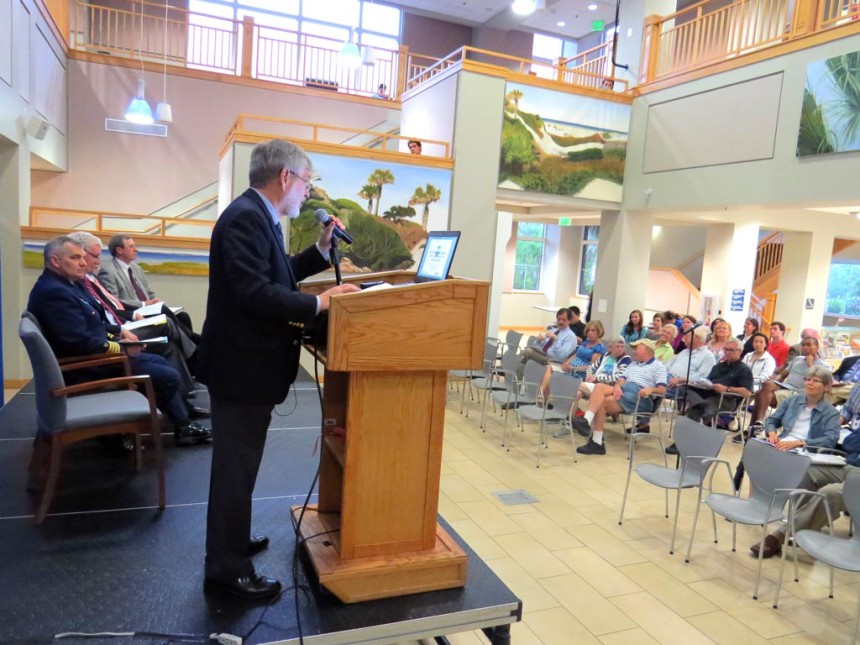 Five years later, disaster recovery experts still describe the impacts of the Deepwater Horizon oil spill as on par with tragedies such as Hurricane Katrina and 9/11.
Five years later, disaster recovery experts still describe the impacts of the Deepwater Horizon oil spill as on par with tragedies such as Hurricane Katrina and 9/11.
As part of the oil spill’s fifth anniversary on April 20, the Healthy Gulf, Healthy Communities team hosted a panel of four experts with extensive and intimate experience with the recent Gulf Coast disasters.
“Prior to (the day of the spill), no one would have ever envisioned that scenario was possible,” said Duke Watson, a Coast Guard commander who served as the federal on-scene coordinator for the oil spill response.
Emerging Pathogens Institute director Glenn Morris leads the Healthy Gulf, Healthy Communities team, while former PIE Center director Tracy Irani and assistant professor Angela B. Lindsey contribute to a group that shares research results and works with the affected communities.
“It’s a good group, and I think we were able to put together a strong response,” Morris said. “We were talking with people before the oil stopped spilling.”
 The researchers found that the economic impact alone was “substantial and profound,” Morris continued, Further, rates of mental health problems were four times higher than normal levels at the time of the spill and still remain elevated.
The researchers found that the economic impact alone was “substantial and profound,” Morris continued, Further, rates of mental health problems were four times higher than normal levels at the time of the spill and still remain elevated.
Richard Powers, a psychiatrist and neuropathologist, participated in the mental health responses of both Hurricane Katrina and the Deepwater Horizon oil spill. As oil came ashore near his residence in Baldwin County, Alabama, he said he felt unprepared.
“All of us were pretty much clueless,” Powers said. “It was hard for us from the very beginning.”
Lessons learned from natural disasters like Katrina don’t apply to the man-made oil spill, which Powers called “either a major mistake or a criminal act.”
Greg Strader, founding executive director of the Be Ready Alliance Coordinating for Emergencies, argued that lessons learned from the Deepwater Horizon and Exxon-Valdez spills can be addressed through legislation. But even though Floridians are accustomed to natural disasters, he said the oil spill impacts could last much longer.
“In natural disasters, it’s over when the response and recovery starts,” Strader said. “With Deepwater Horizon, it’s still not over. There are still oil remnants that will manifest for years. It’s never-ending.”
[gdl_gallery title=”Healthy Gulf, Healthy Communities summit” width=”212″ height=”140″ galid=”5886″ ]

















